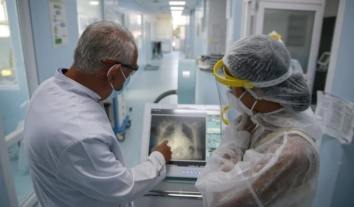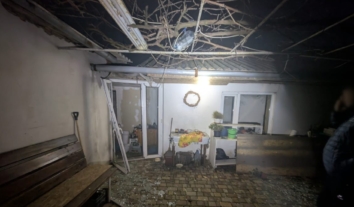Public monitors find out where people from Ivano-Frankivsk police department ‘disappear’
The citizens, who come to the police department in the city of Ivano-Frankivsk, western Ukraine, are not registered in a record book of detainees, visitors, and guests. Those, who are registered, often “do not leave” the department. A record book also does not contain the entries about the status of people and it remains unclear whether people were detained, delivered, or invited to the police department.
Such violations were discovered by the group of monitors of the National Preventive Mechanism during a visit to the police department, the press service of the Ukrainian Parliament Commissioner for Human Rights reports.
The main entrance to the department premises is equipped with a ramp for people with limited mobility, but it does not comply with the construction regulations and the mentioned category of people cannot use it. There are video cameras only near the main entrance, the cameras are missing near the other one. According to the senior officials, the other entrance is not used. Therefore, the members of the group believe there is no proper registration of people, who attend this police department and their stay there is not controlled.
The rooms for those detained and delivered to the police department do not operate, the doors were sealed back in 2013. There no rooms for conduct of investigative activities.
The detained citizens stay in the department offices for more than three-hour period in the conditions that do not meet national and international standards.
During the visit, the monitors did not meet authorized officials, responsible for stay of detainees and providing them with medical aid.
The police department officers also do not comply with the procedure for informing the centers of free secondary legal aid, which is a gross violation of citizens’ right to defense.
Following the visit, the monitors will inform the senior officials of the Ivano-Frankivsk police department about the exposed violations and provide recommendations for their elimination.










